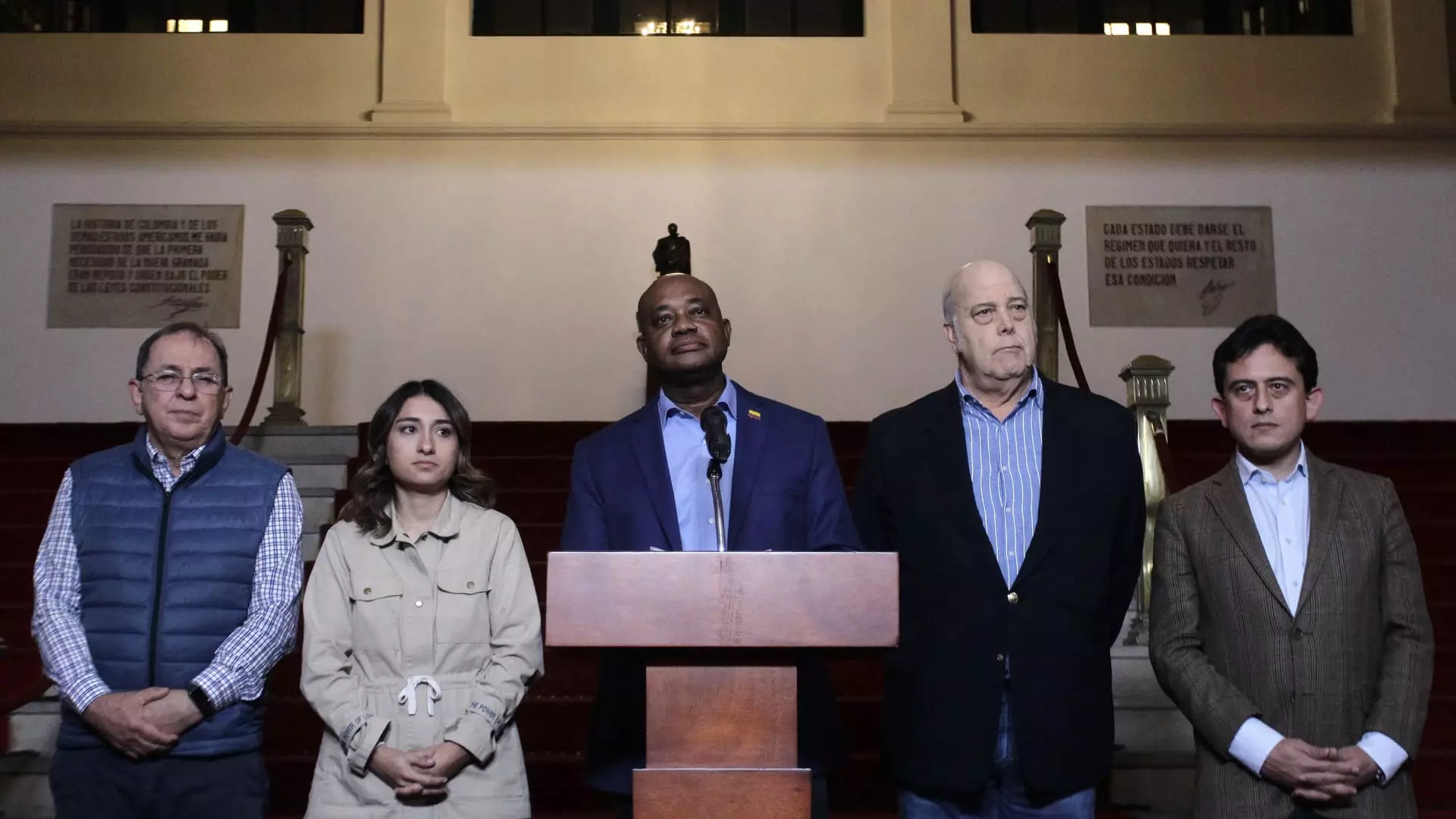The recent thaw in relations between the United States and Colombia marks a significant diplomatic maneuver in the face of potential trade sanctions and tariffs that could have profound implications for both nations. On a fateful Sunday, the U.S. administration announced that Colombia had conceded to accept deported migrants on military aircraft, a pivotal condition that President Donald Trump threatened to enforce with a series of economic penalties. The unfolding drama highlights the complexities of immigration policy intertwined with international trade relations, showcasing how domestic immigration strategies can have far-reaching consequences on the global stage.
The backdrop to this diplomatic crisis lies in the Trump administration’s aggressive stance on illegal immigration. Under his administration, there has been a well-documented effort to tighten borders and send deported individuals back to their home countries, often in the context of military operations. Colombia, at the heart of this conflict, initially resisted the idea of accepting military flights repatriating its citizens, aligning itself with a narrative of national dignity and humanitarian treatment of deportees. Colombian President Gustavo Petro openly criticized militarized deportation, characterizing it as a regression to inhumane policies reminiscent of oppressive regimes.
The threat of economic retaliation came quickly. Trump had outlined a package of punitive measures that included hefty tariffs on Colombian goods and travel restrictions for Colombian officials. These suggested sanctions could have placed enormous stress on Colombia’s economy, which relies heavily on its trade relationship with the United States—a partnership critically important given that the U.S. is Colombia’s largest trading partner.
The turn of events, with Colombia agreeing to accept all deported migrants, echoes the precarious nature of international diplomacy in addressing immigration issues. The White House confirmed that Colombia had complied with Trump’s conditions, thus avoiding the imposition of tariffs that would have opened a Pandora’s box of economic distress. Colombian Foreign Minister Luis Gilberto Murillo expressed relief, announcing that the nation had resolved the tensions and prepared to facilitate the return of its citizens on deportation flights.
Such agreements raise important questions about sovereignty and human rights. While Colombia has agreed to cooperate with the U.S. government, it has simultaneously positioned the acceptance of deportees as a reluctant necessity rather than an enthusiastic endorsement of militarized immigration control. This reflects the broader ambivalence faced by nations caught between U.S. policy demands and their own political and ethical constraints regarding treatment of nationals.
Colombia is not alone in its predicament. Other Latin American nations, including Mexico, have similarly resisted U.S. military-led deportation efforts. These reactions stress the tension embedded in U.S. immigration policy and its reliance on coercive measures involving neighboring countries. The ongoing dialogue surrounding trade and immigration remains fraught with debate, with countries weighing the benefits of U.S. economic partnership against the ethical implications of rigid immigration practices.
As Colombia navigates these waters, there are broader implications at play. The discussions of tariffs and sanctions reveal ongoing vulnerabilities in U.S.-Latin American trade frameworks, which can be easily destabilized by unilateral decisions from Washington. Thus, the potential for reciprocal hostility remains ever-present, underscoring the delicate balance national governments must maintain between advocating for their citizens and responding to pressure from larger powers.
While the immediate crisis has been averted, the issues that ignited this diplomatic standoff are far from resolved. Colombia’s agreement to accept deported migrants on military flights could be seen as a temporary solution to a tricky geopolitical chess game where the stakes are high for both sides. The next steps for both nations will be critical, as Colombia seeks to maintain its dignity and sovereignty while accommodating the demands of its most influential ally.
Understanding the nuances in these discussions will not only shape future engagements between the U.S. and Colombia but will also reflect broader trends in international relations surrounding immigration policies and trade agreements. As both countries move forward, vigilance will be required to ensure that the balance of power does not tip too drastically in favor of one side at the expense of the other’s national integrity.

